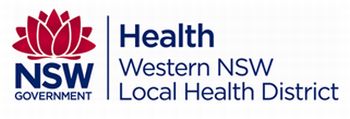Pot scheme reviewed
 Australians are spending over $65 million a month on medicinal cannabis, but ethical care seems optional.
Australians are spending over $65 million a month on medicinal cannabis, but ethical care seems optional.
Medicinal cannabis sales in Australia are skyrocketing, with Australians spending an estimated $400 million in the first half of 2024 alone, according to a report from the Penington Institute.
While the booming market reflects growing acceptance of cannabis for therapeutic use, concerns are emerging over the practices of some clinics, with serious questions about patient safety and the need for regulatory reform.
The report, Cannabis in Australia 2024 (PDF), paints a mixed picture of progress and pitfalls.
Access to medicinal cannabis has never been easier, with record numbers of approvals under the Therapeutic Goods Administration’s pathways. Products for managing chronic pain and anxiety remain the most commonly prescribed, and sales are on track to double compared to 2023. However, the rapid growth is exposing cracks in the system.
John Ryan, CEO of the Penington Institute, has criticised certain clinics for prioritising “high-volume access over high-quality medical care”.
Reports suggest that some prescribers may not be properly assessing patients' medical histories, and there are cases where individuals with severe mental health conditions have received prescriptions without adequate oversight from their regular healthcare providers.
Regulators are under pressure to act.
The TGA has issued more than $1 million in fines for unlawful advertising, yet some businesses continue to flout rules, reportedly incentivising doctors to prescribe specific products or funnelling patients to preferred pharmacies.
These practices not only raise ethical concerns but also risk undermining public trust in the medicinal cannabis industry.
The report calls for stricter enforcement, and suggests that Australia could benefit from a regulated adult-use cannabis model.
Such a system, it argues, would make cannabis more accessible while reducing reliance on the medicinal framework, which currently excludes many Australians, particularly Indigenous and low-income individuals.
The report points to international examples, such as Canada and parts of the United States, where regulated cannabis markets have provided safer and more equitable access.
The experts say Australia needs a coherent approach to cannabis policy - one that balances patient safety, product quality, and public demand for change.








 Print
Print